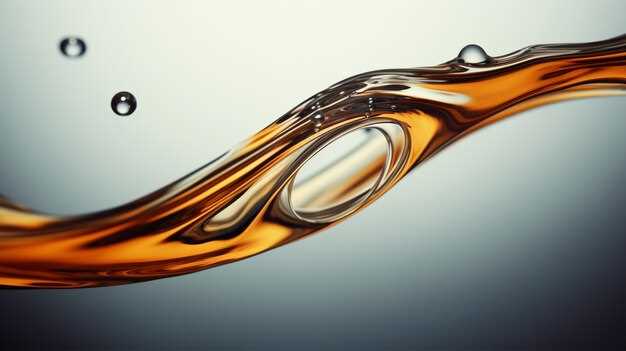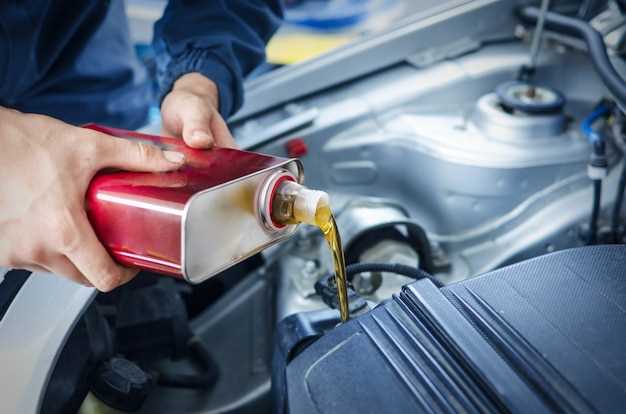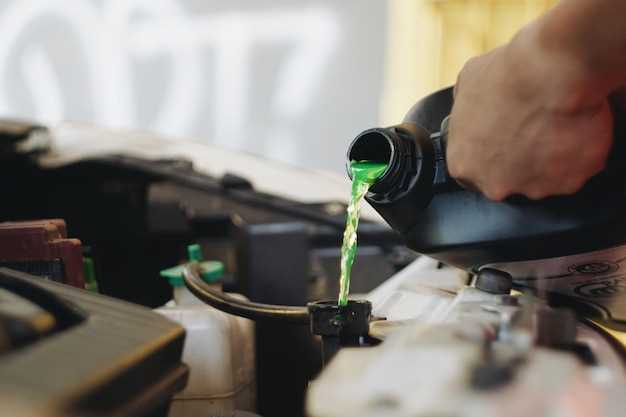
Maintaining the health of older engines can be a challenging endeavor, especially as technology continues to evolve. One critical aspect of engine care lies in understanding how fuel additives and octane boosters can contribute to the overall performance and lifespan of an aging system. As engines age, they may become more susceptible to issues such as carbon buildup, reduced efficiency, and knocking, making the right fuel treatment essential.
Using fuel additives specifically designed for older engines can help mitigate these concerns. These products are formulated to clean fuel systems, improve combustion efficiency, and reduce deposits that can clog vital components. By incorporating these additives into regular maintenance routines, owners of older vehicles can help restore optimal functioning and enhance fuel economy.
Moreover, octane boosters play a significant role in preventing engine knocking, a common problem in older engines that can lead to performance deterioration and potential engine damage. Increasing the octane level of the fuel used in these vehicles not only aids in smooth operation but also allows for better ignition timing and power output. Understanding how to effectively utilize these products can make a significant difference in the longevity and reliability of older engines.
Identifying the Right Fuel Additives for Vintage Engines

Choosing the right fuel additives for vintage engines is essential to maintain their performance and longevity. Vintage engines often require special attention due to their unique designs and materials that can differ significantly from modern counterparts. Understanding the specific needs of these engines will help in selecting appropriate fuel additives that enhance their operation.
First, consider the type of fuel your vintage engine was originally designed to use. Many older engines operated on higher octane fuel without the ethanol content found in most modern gasoline. Look for fuel additives specifically formulated to boost octane levels, ensuring optimal combustion and performance. These additives can help prevent knocking and maintain engine efficiency.
Another critical factor is the prevention of deposits and corrosion. Vintage engines often have fuel systems that may not be compatible with modern fuels that contain various additives and ethanol. Selecting fuel additives that contain detergents can help clean injectors and carburetors, while stabilizers can protect against rust and corrosion, preserving the integrity of fuel lines and tanks.
It is also advisable to choose additives that improve lubricity. Older engines may require additional lubrication to function effectively, particularly in the valve train and other critical areas. Additives that enhance lubricity can help reduce wear on engine components, translating to better performance and longer life.
Lastly, always consult the manufacturer’s recommendations or a trusted mechanic who specializes in vintage vehicles. They can provide valuable insights into which fuel additives have proven effective for specific makes and models. This individualized approach ensures that you are using the best options for your vintage engine, ultimately sustaining its performance and reliability for years to come.
How Octane Boost Impacts Performance in Classic Vehicles
Octane boost significantly influences the performance of classic vehicles, particularly older engines designed for lower octane fuels. Many classic cars were engineered during an era when fuel formulations offered less resistance to knocking. By using octane boosters, drivers can enhance fuel quality, effectively increasing the octane rating of the gasoline consumed by these engines.
Higher octane fuel allows for more aggressive ignition timing and optimized combustion processes. This leads to improved throttle response, enhanced acceleration, and a smoother overall driving experience. For enthusiasts seeking to maximize the performance of their classic vehicles, octane boosters can provide the necessary edge, enabling the engine to perform closer to its original specifications.
Moreover, classic engines can benefit from reduced knocking and pre-ignition, which are common issues associated with lower quality fuels. By incorporating octane enhancers, the likelihood of engine damage decreases, leading to prolonged engine life and reliability. This is especially crucial for vintage vehicles that may not have readily available replacement parts.
Ultimately, using octane boost represents a practical solution for classic car owners looking to preserve engine performance while enjoying the full potential of their vehicles. The enhancement of fuel quality not only supports optimal performance but also helps maintain the integrity of these automotive classics over time.
Maintaining Fuel System Integrity with Additives

Ensuring the integrity of the fuel system is crucial for the optimal performance of older engines. Over time, fuel systems can accumulate deposits and contaminants that can affect engine efficiency and longevity. Fuel additives serve as an effective solution to this problem by helping to clean and protect the internal components of the system.
One of the primary benefits of fuel additives is their ability to clean fuel injectors and combustion chambers. Many older engines experience issues from carbon buildup, which can lead to poor performance and increased emissions. By using a high-quality fuel additive, you can dissolve these deposits, ensuring a more efficient fuel flow and improved combustion.
Additionally, certain additives are designed to prevent corrosion within the fuel system. Older engines often have metal components that can rust or corrode, especially when exposed to moisture in the fuel. Additives that contain anti-corrosion properties help to create a protective barrier, extending the lifespan of critical parts like fuel lines and injectors.
Fuel additives can also stabilize the fuel, preventing degradation over time. Older engines that may not be driven regularly can benefit from stabilizers that keep the fuel fresh, reducing the risk of varnish and sludge accumulation. This contributes to smoother operation and easier starts, especially after periods of inactivity.
Moreover, octane boosters can enhance fuel quality, especially in engines designed for higher octane ratings. By maintaining the appropriate octane level, these additives help to prevent knocking and ensure that the engine runs smoothly under various conditions.
In conclusion, incorporating fuel additives into regular maintenance can significantly improve the integrity of the fuel system in older engines. By providing cleaning, corrosion protection, stabilization, and octane enhancement, these products help to ensure reliable performance and extend the overall lifespan of the vehicle.
